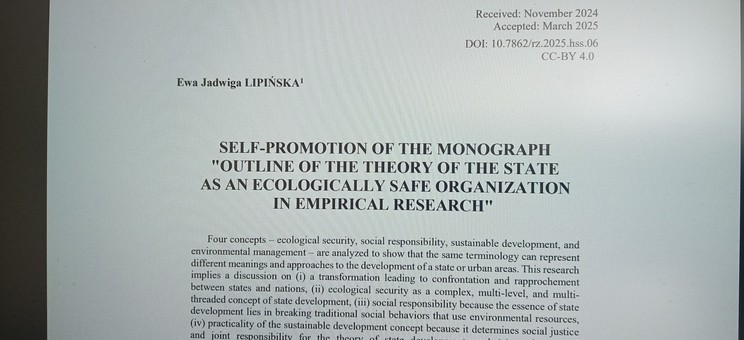SELF-PROMOTION OF THE MONOGRAPH "OUTLINE OF THE THEORY OF THE STATE AS AN ECOLOGICALLY SAFE ORGANIZATION IN EMPIRICAL RESEARCH"
Four concepts – ecological security, social responsibility, sustainable development, and environmental management – are analyzed to show that the same terminology can represent different meanings and approaches to the development of a state or urban areas. This research implies a discussion on (i) a transformation leading to confrontation and rapprochement between states and nations, (ii) ecological security as a complex, multi-level, and multithreaded concept of state development, (iii) social responsibility because the essence of state development lies in breaking traditional social behaviors that use environmental resources, (iv) practicality of the sustainable development concept because it determines social justice and joint responsibility for the theory of state development, and (v) environmental management inspiring the integration of the above-mentioned development trends. The results are discussed. Formulated definitions of the state’s ecological security and of socially responsible and sustainable development of the city are given.
Keywords: ecological security, regional cities, environmental management, social responsibility, sustainable development.
1. INTRODUCTION It is not easy to answer the question about the consequences of global environmental problems that are perceived as local problems because they were created in those places and have their effects in those places (Zhang, 2020; Salvioni, Astori, 2013). The global effects and implications of social and economic growth usually result from states' governance processes. The source of the practical significance of the development of states as ecologically safe organizations can be found in the concept of freedom. Freedom should not be confused with “independence”, of which there are different types depending on the sphere of life that freedom concerns (Rykiel, 2006; Balcerowicz, 2017)....








